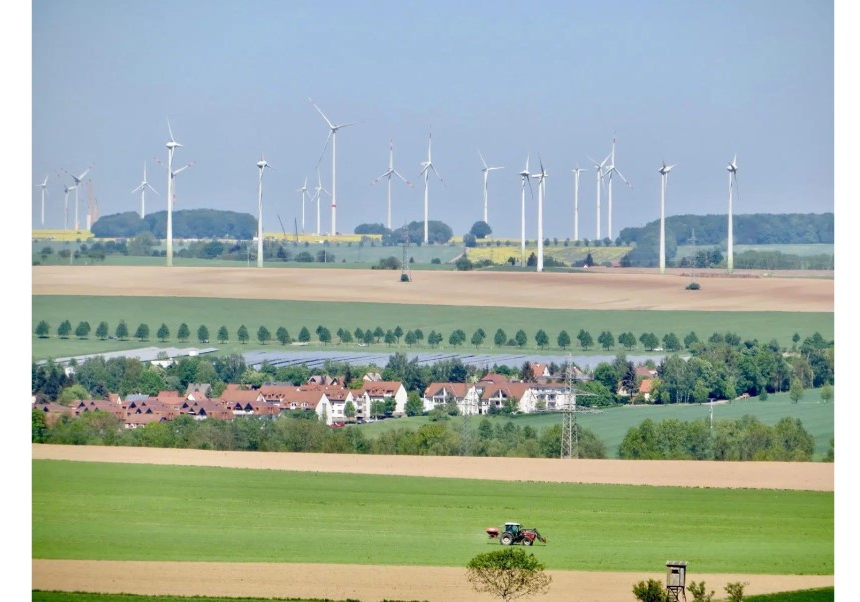
A study involving the Desertification Research Center (CSIC-UV-GVA) finds that the functional characteristics of plants play a crucial role in the way ecosystems respond to changes in land use.
The work, published in 'Science Advances', offers new tools to protect the stability of ecosystems in the face of changes brought about by human activity and climate.
An international team involving the Desertification Research Center (CIDE) of the Spanish National Research Council (CSIC), the Universitat de València (UV) and the Generalitat Valenciana, has studied how land use affects the stability of ecosystems, their ability to remain in balance in the face of conditions such as intensive land use or climate change. The results, published in the journal Science Advances, highlight a key finding: the functional characteristics of plants, such as the strategies they use to grow and take advantage of resources, play a crucial role in how ecosystems respond to changes in land use. CIDE is the only Spanish research center participating in this study, in which scientists from Germany, Switzerland and the Czech Republic are collaborating.
To carry out this work, they used information from organisms of various trophic levels, the steps that represent how living things in an ecosystem obtain their energy and nutrients, which inhabit 300 sites (grasslands and forests) spread across northern, central and southern Germany. The analyzed data were collected over 13 years through the 'Biodiversity Exploratories' initiative, an open research platform funded by the German Research Foundation.
“Our study has shown for the first time how changes in plant characteristics, such as the way they use resources, can influence ecosystem stability. Changes in land use, such as agriculture or urbanization, affect the variability of dominant species, the most common in an ecosystem, and this impacts the balance of the entire ecosystem,” explains Marta Gaia Sperandii, first author of the study she conducted during her stay at CIDE with funding from the State Research Agency of the Ministry of Science, Innovation and Universities.
“This effect does not occur only within a specific group of plants, but also affects other organisms such as insects or animals that depend on them. Thus, the diversity of plants and their strategies to take advantage of natural resources play a key role in the stability of ecosystems over time,” says the researcher.
Plants as 'rock stars
The research team found that plants with 'acquisitive' strategies, those that grow fast and consume many resources, are the main mediators of these effects. Thus, when land use is intensified, intensive exploitation for agriculture, livestock or construction, an increase of these types of plants is observed. “They would be like rock stars that live fast and leave a nice corpse,” gives as an example Francesco de Bello, CIDE researcher participating in the study. “These types of 'opportunistic' plants make the ecosystem more unstable.”
The study shows that the balance of ecosystems depends not only on the number and variety of species that compose them and their relationships, but also on the role played by the different species in maintaining this balance. “Animals and plants exhibit an extraordinary variability in their functional and morphological characteristics, including differences in size, weight, shape, reproductive capacity or resource use strategy,” argues the CIDE researcher. “These functional traits determine the role that species play in ecosystems, and therefore in their stability,” he summarizes.
Studies in the Valencian Community, Bioclima Network
In addition, the paper highlights that, to better understand changes in ecosystems, it is essential to look at the interactions between different trophic levels, such as plants and arthropods. This could help to design more sustainable land management strategies that preserve both biodiversity and essential ecosystem functions. By identifying which features of plant communities are most sensitive, the researchers offer new strategies to protect ecosystems from changes due to human activity or the effects of climate change.
Regarding the application of this type of studies in Spain, de Bello recalls that time series of data maintained over time are needed, which are costly to obtain because they require a solid and complex organization for the collection of data financed for decades. This is something that the CIDE is trying to do through the Bioclima Network, an initiative financed by the Generalitat Valenciana to study the response of biodiversity to climate change in several typical terrestrial ecosystems of the Valencian territory, mostly located in Natural Parks.
Reference:
Marta Gaia Sperandii, Manuele Bazzichetto, Lars Götzenberger, Marco Moretti, Rafael Achury, Nico Blüthgen, Markus Fischer, Norbert Hölzel, Valentin H. Klaus, Till Kleinebecker, Felix Neff, Daniel Prati, Ralph Bolliger, Sebastian Seibold, Nadja K. Simons, Michael Staab, Wolfgang W. Weisser, Francesco de Bello & Martin M. Gossner. Functional traits mediate the effect of land use on drivers of community stability within and across trophic levels. Science Advances, 2025. DOI: https://doi.org/10.1126/sciadv.adp6445.
CIDE Communication









